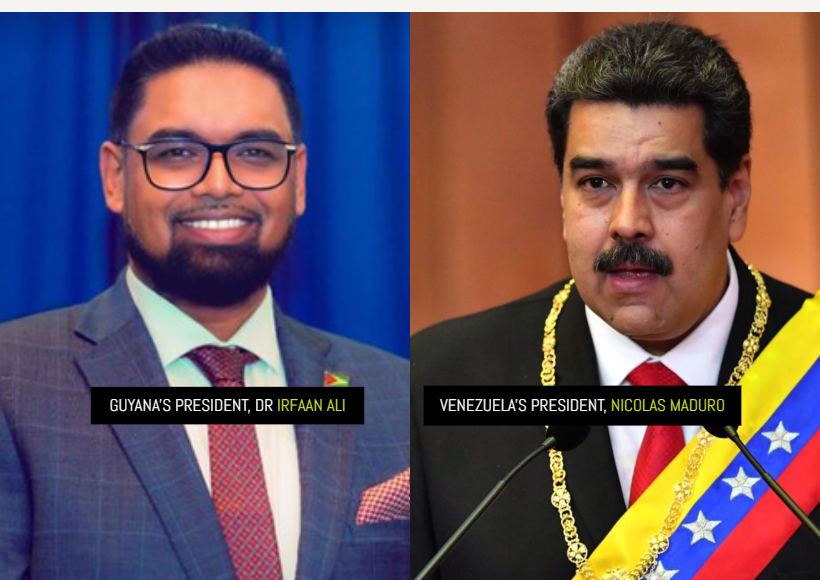President of Guyana, Dr. Irfaan Ali has expressed his reluctance to engage with Venezuela’s Head of State Nicolás Maduro on the ongoing border controversy before the International Court of Justice (ICJ).
Despite this, President Ali emphasized his openness to discussing other shared issues with Venezuela, highlighting the importance of addressing mutual concerns as good neighbours.
While noting that the border dispute currently under ICJ jurisdiction cannot be part of any bilateral talks between them, he reaffirmed Guyana’s commitment to the ICJ as the appropriate forum for settling the Venezuela controversy. “The matter is properly before the court so it is not up for negotiations and discussions,” Ali stated.
It must be noted that there were several attempts in the past by Venezuela and Guyana to have bilateral talks. However, those were unsuccessful, leading to the referral of the matter to the ICJ by the United Nations Secretary-General in 2018. The Geneva Agreement, signed in 1966, provides the framework for the UN Secretary-General to determine a permanent resolution to the border dispute between Guyana and Venezuela.
The President also noted that Venezuela initially accepted the 1899 arbitral award that defined the boundaries of Guyana and for 60 years.
The recent escalating tensions by Venezuela initiated in September after the Spanish-speaking nation strongly objected to Guyana’s 2022 Licensing Round for oil blocks, primarily citing concerns related to maritime delimitation.
Venezuela had issued a strongly worded communique, expressing apprehension about Guyana’s intentions to auction specific oil blocks in the disputed waters off its coast. The communique also contained veiled threats to take “all necessary measures” to prevent operations authorized by Guyana in its waters.
Further complicating matters, Venezuela scheduled a referendum for December 3, 2023, regarding its claims to Guyana’s oil-rich territory. The questions approved for the referendum encompass issues related to historical disputes and legal instruments.
Guyana’s has since asked the court to issue emergency measures on the referendum noting that it does not aim to stop the referendum but ensure that Venezuela knows that it has no right to decide on other citizens’ faith outside of the borders of Venezuela and in defiance of world opinion.













